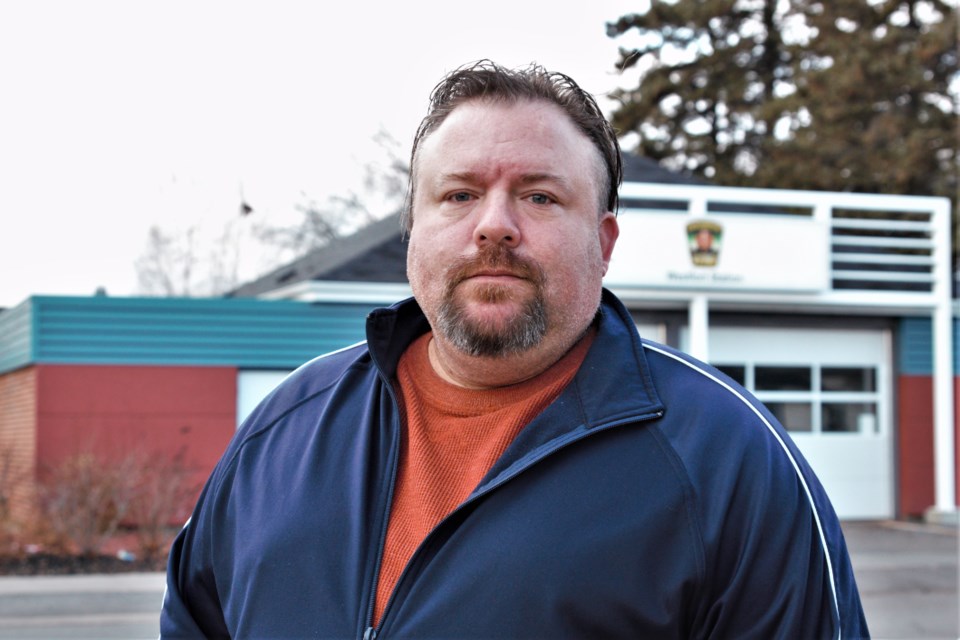THUNDER BAY — Union officials say frustration is mounting among the ranks of paramedics working for Superior North Emergency Medical Services.
Unifor Local 39-11 has told management "Your service is broken.Your paramedics are broken" because there are too many calls and not enough staff.
Dougall Media obtained a copy of a letter to the Superior North EMS senior management team in which the union says paramedics have faced the "monster" that is the COVID-19 pandemic not knowing that it would forever impact their physical and mental health.
Despite the stress they've endured, it states "The dead eyes and empty souls that occupy the first floor of this building have kept this machine running for years. We will keep it running. It is what we do."
The letter levels some criticism at management.
It says "Your paramedics have answered the call and have made personal and family sacrifices to provide an ambulance service to the City of Thunder Bay," and alleges that while paramedics "shovel coal into the boiler of a sinking ship" management continues to work a compressed schedule "from your ivory tower or work from home."
The union official who wrote the letter writes "When I think things can't get any worse here, I am proven wrong...time and time again."
Dougall Media reached out to Superior North EMS management for an interview, but the request was declined.
Rob Moquin, unit chair for Unifor Local 3911, said the letter reflects paramedics' belief that they require more support from administration, and specifically the hiring of more permanent staff.
Moquin said COVID-19 has only exacerbated workload issues that have been years in the making, with calls for service increasing about eight per cent annually.
He said Superior North EMS is the busiest paramedic service in Ontario on a per capita basis.
According to the union local's vice-chair, Kyle Stamler, it's responsible for 160,000 people across the Thunder Bay district but is only staffed to properly look after a population of about 90,000.
Stamler said Superior North EMS requires about 25 per cent more paramedics.
Recruiting needs to be stepped up, Moquin said, or staff will keep leaving to work elsewhere.
"We're tired. And we've made it very clear to our senior admin that we're beyond broken."
Reiterating the union's concerns about lengthy delays in offloading patients at Thunder Bay Regional Health Sciences Centre, Moquin said paramedics are sometimes staying with their patient at the hospital for four hours past the scheduled end of their shift.
"It keeps them from going home, having that extra time off to decompress and think about the things they've done through the day....We have countless hours of work being done just to staff ambulances so the city has an ambulance service all the time."
Despite all the overtime, Superior North EMS management recently confirmed that the number of occasions on which there is no ambulance available to take a call in the city has grown.
Moquin said one contributor to the problem is the frequency with which paramedics are sent to help people they are not trained to help.
"This is not paramedic work. We're doing a lot of socio-economic calls, a lot of mental health calls...It's not an ambulance call. That weighs heavy on paramedics. We're unable to be effective in someone's treatment plan."
He said the growing job stress is causing many paramedics to lose the passion they had for their jobs when they started their careers.
Knowing they will likely be on the road with no breaks for an entire shift means "It's very difficult to come to work, feeling there's no support from upstairs," Moquin added.
Superior North EMS Chief Wayne Gates appealed to the public last month to reduce non-emergency calls to 911 because the ambulance service was under stress.
Gates also acknowledged the work that paramedics were doing to ensure that service was available, including working on their normal days off.
In 2021, Thunder Bay City Council approved a new 10-year master plan for Superior North EMS that includes finding alternatives to hospital visits, with an emphasis on community paramedicine and more mental health and addictions treatment options.
